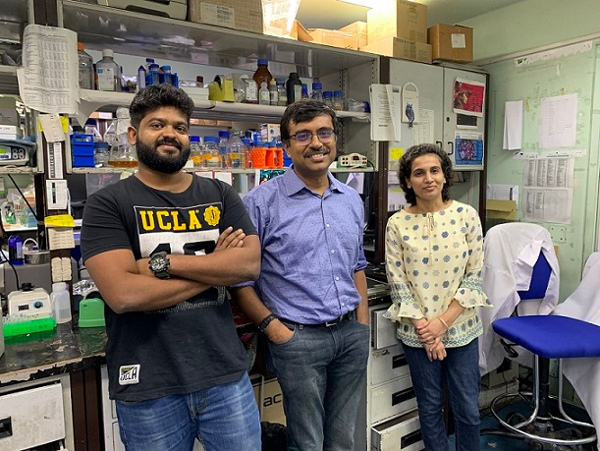In a new development in the area of cancer research, scientists at Delhi-based National Institute of Immunology (NII) have found a way to stop the degradation of a protein called p53 that prevents cancer cells from proliferating and forming tumours in the body.
p53 is one of the most well studied proteins in cancer biology. Like all proteins, its levels and activity are tightly controlled and they go through cycles of birth-existence-death: the protein is synthesised, it does its function and then it is degraded. When required, the protein is re-synthesised and the cycle keeps repeating.
Scientists across the world have been trying to find out how the level of p53 is regulated and what are the mechanisms underlying its degradation. The team of scientists at NII have now have shown that a protein called FBW7 is responsible for degrading p53. It degrades not only the wild type p53 but also mutant p53 version, which is involved in tumour promotion. As a validation of their finding, researchers have shown that the half-life of p53 is increased and its function as tumor suppressor got enhanced in cancer cells that lacked FBW7.
“ Scientists across the world have been trying to find out how the level of p53 is regulated and what are the mechanisms underlying its degradation. ”
The team has also worked out the mechanistic details of how FBW7a recognizes p53 and degrades it. Further, they have showed that the degradation happens as a result of damage to DNA induced by radiation and chemotherapy. Interestingly, FBW7 expression itself is dependent on p53 and it gets induced when cancer cells are exposed to DNA-damaging events. This indicates the presence of auto-regulatory loop in cells which tightly regulates the amount of p53 required to be present in the cells at any particular time.
“The results from our research provide novel ways of improving tumor regression by improving the function of p53 by stabilizing its levels. This could be achieved by using a mutant of p53, which will not be degraded by FBW7α and may accentuate the therapeutic potential. Future work is needed to build on this startegy to find clinical application,” explained Dr. Sagar Sengupta, leader of the research team, while speaking to India Science Wire.
The study results have been published in the Journal of Biological Chemistry. The team included Vivek Tripathi, Ekjot Kaur, Suhas Sampat Kharat, Mansoor Hussain, Arun Prasath Damodaran and Swati Kulshrestha. The work was supported the Department of Biotechnology, Council of Scientific and Industrial Research, Science and Engineering Research Board and Department of Science and Technology.
India Science Wire
Source: Vigyan Prasar
Image Courtesy: Vigyan Prasar
You may also like
-
New Heat-Based Approach To Cancer Treatment Can Reduce Chemotherapy Doses
-
Scientists Take A Major Step Towards Unification Of Classical & Quantum Gravity
-
India Graphene Engineering and Innovation Centre (IGEIC) Under the Vision of Viksit Bharat@2047 Launched
-
New High-Performance Gas Sensor can Monitor Low Level Nitrogen Oxides Pollution
-
Antidepressant Drug can be Repurposed for Treating Breast Cancer
